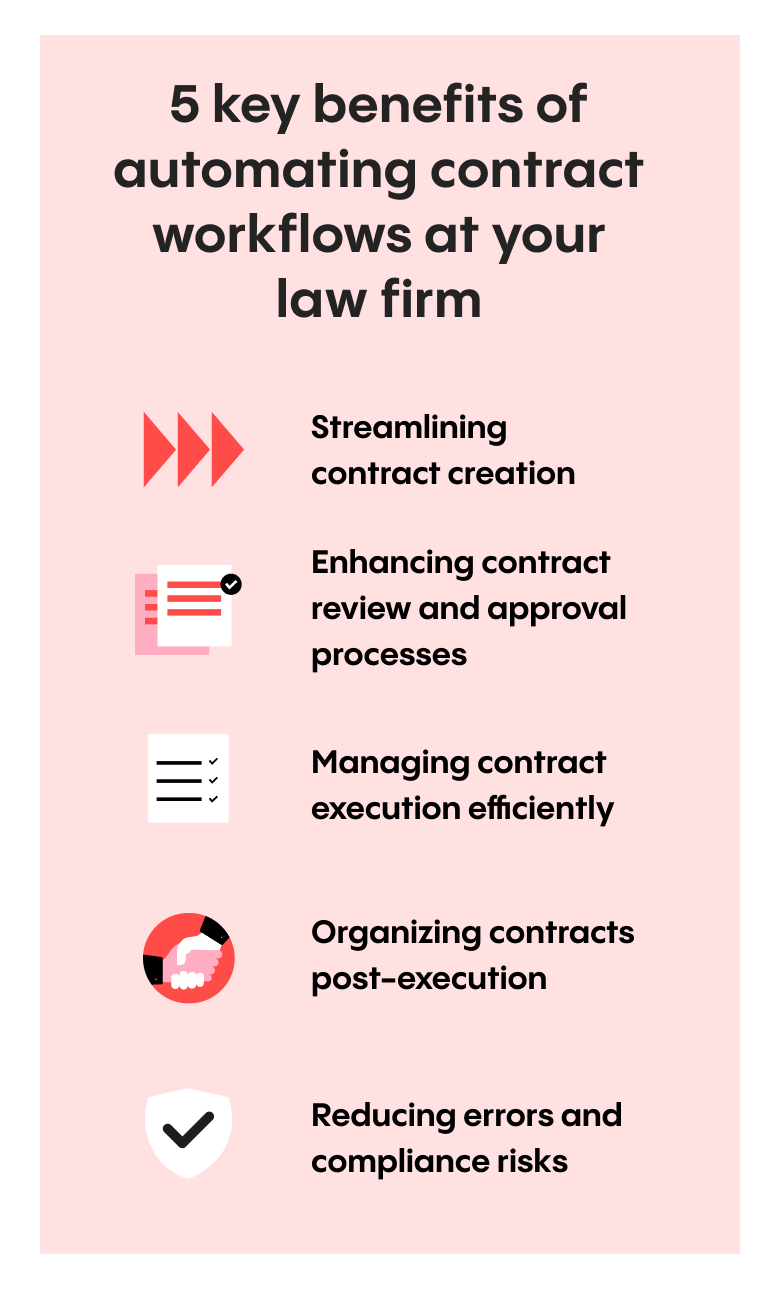Have you ever found yourself in a situation where your driver’s license was suspended due to child support issues? It can feel overwhelming, but understanding the steps to reinstate your license can make the process smoother. Let’s explore how you can navigate this challenge effectively.
DRIVER’S LICENSE

Your driver’s license is more than just a card; it represents your freedom and ability to manage daily responsibilities. When it gets suspended, it can disrupt your life significantly. But why does this happen? In many states, if you fall behind on child support payments, your license can be suspended as a means to encourage compliance. This can feel like a double-edged sword, as losing your license can make it even harder to earn the income needed to pay support.
License Suspension
License suspension due to child support is a common issue that many face. It’s important to recognize that this is a legal measure intended to ensure that parents fulfill their financial obligations to their children. If you find yourself in this situation, here are some steps you can take to reinstate your license:
- Understand the Reason for Suspension: First, check the specific reasons your license was suspended. This information is usually available through your state’s child support enforcement agency. You can find more details on the California Child Support website.
- Make Payments: If possible, make a payment towards your child support arrears. This shows your commitment to fulfilling your obligations and can sometimes lead to a quicker reinstatement.
- Request a Hearing: If you believe the suspension was unjust or if you have a valid reason for non-payment, you can request a hearing. This is your opportunity to present your case and potentially have the suspension lifted.
- Complete Required Courses: Some states may require you to complete a parenting or financial management course before reinstating your license. Check with your local child support agency for specific requirements.
- Obtain a Release: Once you’ve met the necessary conditions, you’ll need to obtain a release from the child support agency. This document is crucial for the reinstatement process.
- Visit the DMV: Finally, take the release to your local Department of Motor Vehicles (DMV) to officially reinstate your license. Be prepared to pay any reinstatement fees that may apply.
It’s essential to stay proactive throughout this process. Engaging with your local child support agency and understanding your rights can make a significant difference. If you’re looking for more personal experiences, you might find insights on platforms like Quora or Reddit helpful.
Remember, you’re not alone in this journey. Many have faced similar challenges and have successfully navigated the reinstatement process. By taking the right steps and staying informed, you can regain your driving privileges and continue to support your family effectively.
License suspended for non payment. How and who do I petition to get my license back in a limited capacity to be able to drive to work related functions? In New York.
Finding out that your license has been suspended due to non-payment of child support can feel overwhelming. You might be wondering, “How can I get my license back, especially if I need to drive for work?” In New York, the process involves a few steps, but it’s definitely manageable with the right information.
First, you’ll need to understand the specific reasons for your suspension. Typically, licenses are suspended when there are significant arrears in child support payments. To reinstate your license, you can petition the court for a limited license, which allows you to drive for essential purposes, such as commuting to work or attending necessary appointments.
To start this process, you should:
- Gather all relevant documentation regarding your child support payments and any communication with the child support agency.
- Contact the local child support enforcement office to discuss your situation and find out the exact amount owed.
- File a petition with the court that issued the child support order. This petition should outline your need for a limited license and include any supporting documents.
- Prepare for a court hearing where you can present your case. It’s often helpful to have a lawyer or advocate assist you in this process.
Remember, the goal is to demonstrate your commitment to fulfilling your child support obligations while also maintaining your ability to work. For more detailed guidance, you can check resources like California’s Child Support Services.
Releasing a License Suspension
Once you’ve filed your petition, the next step is understanding how the release of your license suspension works. The court will review your case, and if they find that you have made a good faith effort to pay your child support, they may grant you a limited license. This is a crucial step, as it allows you to drive legally while you work on resolving your payment issues.
In many cases, the court may require you to set up a payment plan to address any outstanding child support. This plan can help you manage your finances better while ensuring that your obligations are met. It’s important to stay proactive and communicate with the child support agency about your payments. If you’re facing financial difficulties, don’t hesitate to discuss this with them; they may offer options to help you.
Additionally, if you’re considering bankruptcy as a way to manage your debts, be aware that it can impact your child support obligations. For more information on how bankruptcy affects driver’s license suspensions, you can visit Consumer Help Central.
Suspended License
A suspended license can significantly impact your daily life, especially when it comes to work and family responsibilities. It’s essential to take action as soon as you learn about the suspension. The longer you wait, the more complicated the situation can become. You might feel frustrated, but remember that many people have navigated this path successfully.
Consider reaching out to local support groups or legal aid organizations that specialize in child support issues. They can provide valuable insights and may even help you with the petition process. Additionally, staying informed about your rights and responsibilities can empower you to take control of your situation.
Ultimately, the key to reinstating your suspended license lies in your willingness to engage with the system and fulfill your obligations. By taking proactive steps, you can work towards regaining your driving privileges and ensuring that you can support your family effectively. For further assistance, you can explore resources like Sacramento County Child Support Services.
Understanding License Suspension Due to Child Support

Have you ever found yourself in a situation where your license was suspended because of child support issues? It can feel overwhelming, but understanding the process is the first step toward reinstatement. When a parent falls behind on child support payments, states often take action by suspending their driver’s license. This is intended to encourage compliance with support obligations, but it can create significant challenges for the parent trying to maintain employment and fulfill other responsibilities.
License suspended due to insurance.
It’s not just child support that can lead to a suspended license; sometimes, it’s related to insurance issues. If you’ve been caught driving without insurance or if your insurance has lapsed, your license can be suspended. This can feel like a double whammy, especially if you’re already dealing with child support issues. The good news is that reinstating your license after an insurance-related suspension is often straightforward. You’ll typically need to provide proof of insurance and pay any associated fees.
For example, if you’ve recently secured a new insurance policy, make sure to keep your documentation handy. You may need to present this to the DMV or your local court to prove that you are now compliant with insurance requirements. Remember, staying proactive about your insurance can prevent future suspensions and keep you on the road.
License Points and Suspensions
Did you know that accumulating points on your driving record can also lead to a suspended license? Each state has its own point system, and certain violations can add up quickly. For instance, speeding tickets, DUIs, and reckless driving can all contribute to your point total. If you reach a specific threshold, your license may be suspended, regardless of your child support status.
To navigate this, it’s essential to understand your state’s point system. You might consider taking a defensive driving course, which can sometimes reduce points on your record. This not only helps in keeping your license but also enhances your driving skills. If you find yourself facing a suspension due to points, reaching out to a legal expert can provide clarity on your options and help you formulate a plan for reinstatement.
NY DMV denied my request for a driver’s license after revocation, how do I appeal?
If you’ve faced a denial from the NY DMV after a license revocation, you might be wondering what your next steps are. The appeal process can seem daunting, but it’s important to remember that you have rights. First, gather all relevant documentation, including any proof of child support payments made, proof of insurance, and any correspondence with the DMV.
Next, you’ll want to file an appeal with the DMV. This typically involves submitting a written request along with your supporting documents. It’s crucial to be clear and concise in your appeal, outlining why you believe the decision should be reconsidered. If you’re unsure about how to proceed, consider consulting with a legal professional who specializes in DMV issues. They can provide guidance tailored to your situation and help you navigate the complexities of the appeal process.
In the end, whether it’s dealing with child support, insurance issues, or points on your license, staying informed and proactive is key. Remember, you’re not alone in this journey, and there are resources available to help you regain your driving privileges. If you’re looking for more insights on related topics, check out our articles on Best Instagram Advertising Agencies or Best Digital Marketing Podcasts for additional guidance and support.
If your license got suspended for 6 months – what would you do?
Imagine waking up one day to find out that your driver’s license has been suspended due to child support issues. It’s a frustrating situation, isn’t it? You might be wondering how you’ll get to work, pick up your kids, or even run essential errands. The first step is to understand the reason behind the suspension. Typically, licenses are suspended when a parent fails to meet child support obligations, which can feel overwhelming.
So, what can you do? Start by contacting your local child support agency. They can provide you with details about your case and what steps you need to take to reinstate your license. Often, you may need to make a payment or set up a payment plan to show your commitment to fulfilling your obligations. Once you’ve addressed the child support issue, you can then approach the DMV to discuss reinstatement. It’s crucial to keep records of all communications and payments made, as this documentation will be vital in your reinstatement process.
Additionally, consider seeking legal advice if you feel overwhelmed. A lawyer specializing in family law can guide you through the process and help you understand your rights. Remember, you’re not alone in this; many people face similar challenges, and there are resources available to help you navigate through them.
DMV suspended my license before court hearing. I drive for work. What ifs…?
Finding out that the DMV has suspended your license before you even had a chance to present your case in court can feel like a punch to the gut, especially if you rely on driving for work. You might be asking yourself, “What now?” The first thing to do is to gather all relevant information regarding your case. Understanding the timeline and the reasons for the suspension is crucial.
Next, reach out to the DMV to clarify the situation. Sometimes, suspensions can be lifted temporarily if you can demonstrate that you need your license for work. This might involve providing proof of employment and explaining how losing your license impacts your ability to earn a living. In some cases, you may be eligible for a restricted license that allows you to drive to and from work.
While you’re navigating this process, it’s also wise to prepare for your upcoming court hearing. Gather any evidence that supports your case, such as proof of payments made towards child support or documentation of your employment. This preparation can significantly impact the outcome of your hearing. Remember, staying proactive and informed can make a world of difference in resolving your situation.
How do insurance companies react to someone who is caught driving without a license?
Driving without a license can lead to a cascade of consequences, especially when it comes to your relationship with insurance companies. If you’re caught driving without a valid license, you might be wondering how this will affect your insurance rates or your ability to get coverage in the future. Generally, insurance companies view driving without a license as a significant risk factor. They may categorize you as a high-risk driver, which can lead to higher premiums or even denial of coverage.
Moreover, if you have an accident while driving without a license, your insurance company may refuse to cover the damages, leaving you financially responsible for any costs incurred. This situation can be particularly daunting, especially if you rely on your vehicle for daily activities. It’s essential to communicate openly with your insurance provider about your situation. They may offer guidance on how to reinstate your license and what steps you can take to mitigate the impact on your insurance.
In the long run, addressing the root cause of your license suspension and ensuring you have valid insurance coverage is crucial. This proactive approach not only protects you legally but also helps maintain your financial stability. Remember, it’s never too late to take steps towards rectifying your situation and ensuring you’re back on the road legally and safely.
Child Support Services

When it comes to child support, many people are unaware of the serious consequences that can arise from failing to meet payment obligations. One of the most significant repercussions is the potential suspension of your driver’s license. This can feel overwhelming, especially if you rely on your vehicle for work or daily activities. Understanding how Child Support Services operate and the steps you can take to reinstate your license is crucial.
Child support agencies are tasked with ensuring that non-custodial parents fulfill their financial responsibilities. If you fall behind on payments, these agencies can take various actions, including suspending your driver’s license. This is often done to encourage compliance, but it can create a cycle of hardship for those affected. If you find yourself in this situation, it’s essential to know that there are ways to address the issue and regain your driving privileges.
Can I lose my license for this?
Absolutely, yes. Many states have laws that allow for the suspension of a driver’s license if a parent is delinquent on child support payments. This is often seen as a last resort, but it can happen if you fail to respond to notices or do not make arrangements to pay what you owe. The idea behind this policy is to motivate parents to fulfill their obligations, but it can lead to significant challenges for those who depend on their license for employment or family responsibilities.
For instance, if you’ve missed several payments, the Child Support Services may notify the Department of Motor Vehicles (DMV) to suspend your license. This can happen without a court hearing, which can feel quite unfair. If you’re facing this situation, it’s important to act quickly. You can often request a hearing to contest the suspension or negotiate a payment plan that works for you.
Anyone been stopped for suspended license (1st offense) or driving without a license (2nd offense)?
Getting pulled over for a suspended license can be a nerve-wracking experience. Many people have found themselves in this situation, often feeling a mix of anxiety and frustration. If you’ve been stopped for a first offense of driving with a suspended license, the consequences can vary widely depending on your state’s laws. Typically, you may face fines, points on your record, or even a short jail sentence.
On the other hand, if you’re caught driving without a license for a second offense, the penalties can be more severe. This could include higher fines, longer license suspensions, or additional legal repercussions. It’s a tough spot to be in, especially if you’re trying to navigate the complexities of child support obligations at the same time. If you find yourself in this situation, it’s crucial to consult with a legal expert who can guide you through the process and help you understand your rights.
Many individuals have shared their experiences online, discussing how they managed to reinstate their licenses after facing these challenges. Some have found success by demonstrating a commitment to making child support payments, while others have sought legal assistance to navigate the system more effectively. If you’re in a similar situation, consider reaching out to a local attorney who specializes in family law or child support issues.
License Suspension (SLMS)

Have you ever found yourself in a situation where your license was suspended due to child support issues? It can feel overwhelming, but understanding the process can help you regain your driving privileges. The Suspension of License for Non-Payment of Support (SLMS) is a common consequence for parents who fall behind on their child support payments. This system is designed to encourage compliance with child support obligations, but it can also create significant challenges for those affected.
When your license is suspended, it can impact your daily life in numerous ways. From commuting to work to running essential errands, the inability to drive can feel like a major setback. However, the good news is that reinstating your license is possible, and it often involves a few key steps. Let’s explore what you need to know to navigate this process effectively.
First, it’s crucial to understand the reasons behind the suspension. Typically, a license is suspended when a parent fails to make child support payments for a certain period. This is enforced by state agencies to ensure that children receive the financial support they need. If you find yourself in this situation, the first step is to check your child support status. You can usually do this through your state’s child support enforcement agency.
Once you have clarity on your situation, the next step is to address any outstanding payments. This might involve setting up a payment plan or making a lump sum payment to bring your account current. Many states offer options for parents to negotiate their payments, so don’t hesitate to reach out and discuss your circumstances. Remember, communication is key!
After you’ve made the necessary payments, you’ll need to apply for reinstatement of your license. This process can vary by state, but generally, you will need to provide proof of payment and possibly attend a hearing. It’s advisable to gather all relevant documentation, such as payment receipts and any correspondence with the child support agency, to support your case.
In some instances, you may also need to pay a reinstatement fee. This fee can vary widely depending on your state’s regulations, so be sure to check the specific requirements. Once you’ve completed these steps, you should be on your way to having your license reinstated. It’s a process that requires patience and diligence, but the reward of regaining your driving privileges is well worth the effort.
Family Code §17520
Understanding the legal framework surrounding child support and license suspension is essential. One key piece of legislation is Family Code §17520, which outlines the authority of state agencies to suspend licenses for non-payment of child support. This law serves as a powerful reminder of the responsibilities that come with parenthood.
Under this code, if a parent fails to make child support payments, the state can take action to suspend their driver’s license, professional licenses, and even recreational licenses. This can feel harsh, but the intention is to ensure that children receive the support they need. It’s a legal mechanism designed to encourage compliance, but it can also lead to unintended consequences for parents who may be struggling financially.
For many, the suspension of a license can create a cycle of hardship. Without the ability to drive, finding and maintaining employment can become increasingly difficult, which may lead to further financial strain and, ultimately, more missed payments. This is why it’s crucial to address any child support issues as soon as they arise. If you’re facing challenges in making payments, consider reaching out to a legal professional who can help you navigate your options.
In conclusion, while the process of reinstating a suspended license due to child support can be daunting, it is manageable with the right approach. By understanding the reasons behind the suspension and the legal framework that governs it, you can take proactive steps to regain your driving privileges. Remember, you’re not alone in this journey, and there are resources available to help you along the way. If you’re interested in learning more about related topics, check out our articles on Best YouTube Marketing Agencies, Best Pinterest Marketing Agencies, Best Amazon Marketing Agencies, and Best Twitter Marketing Agencies for additional insights and support.












